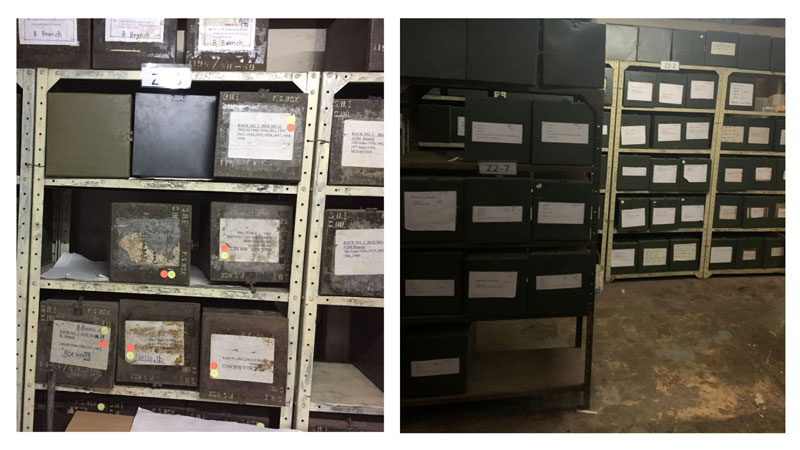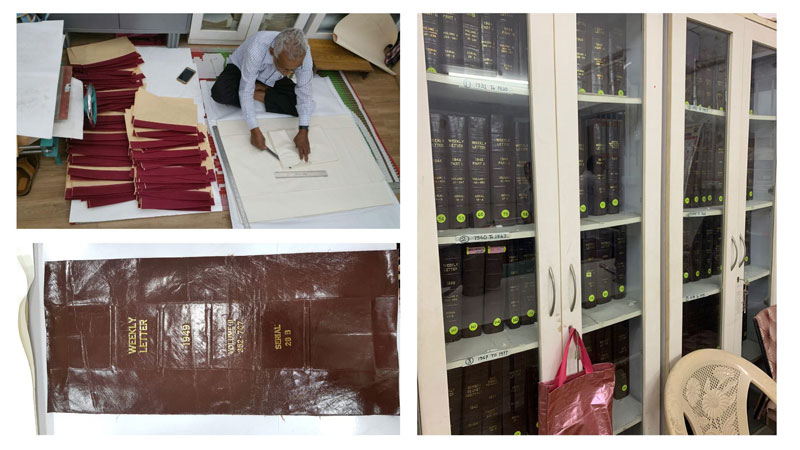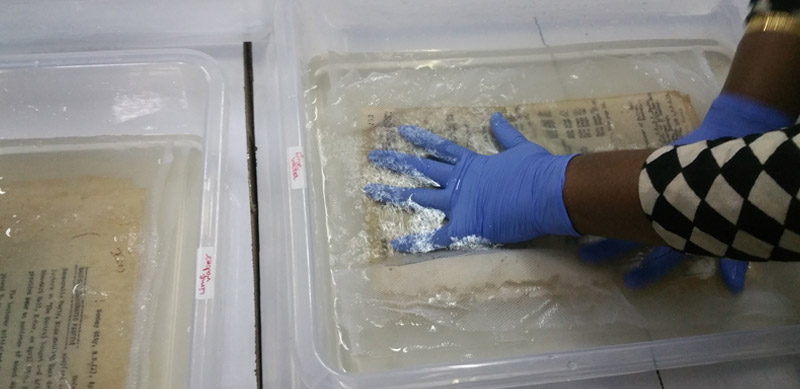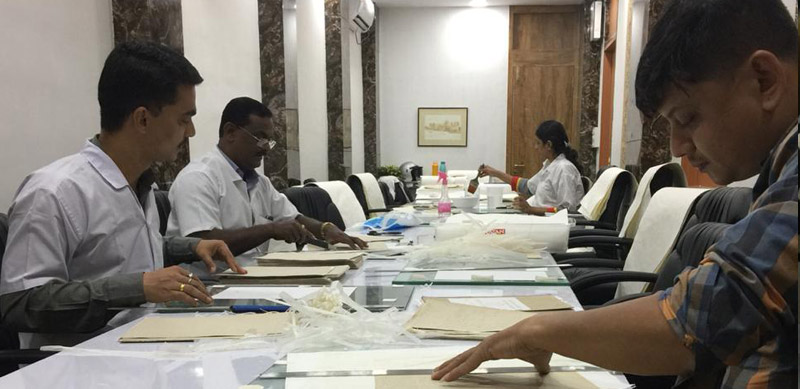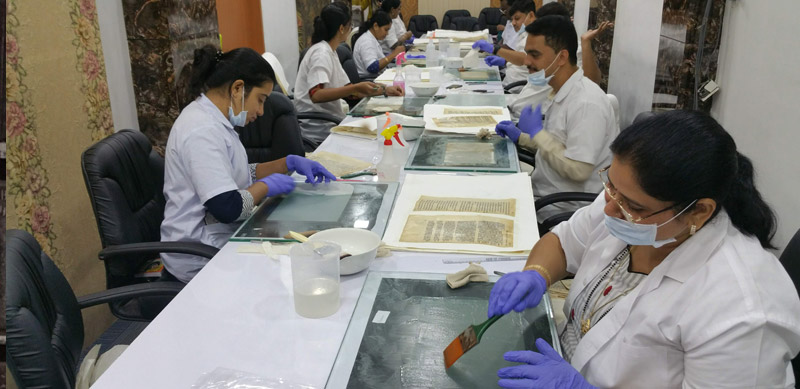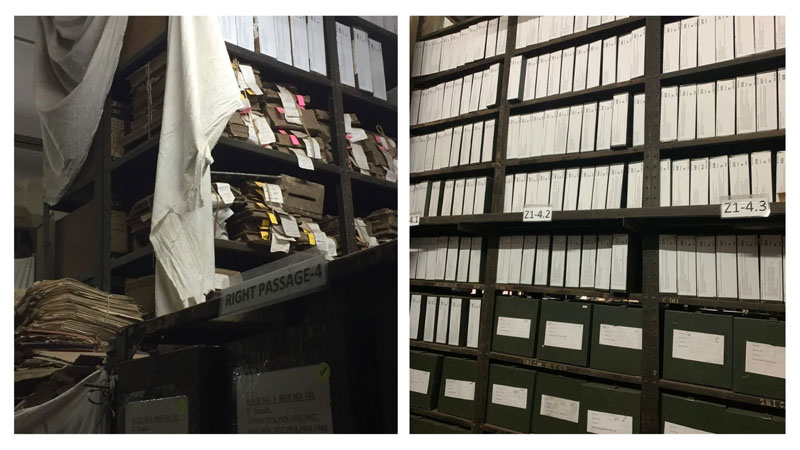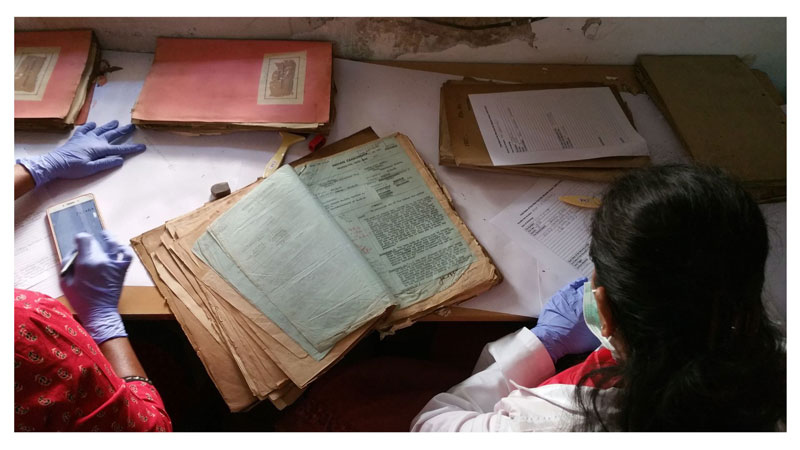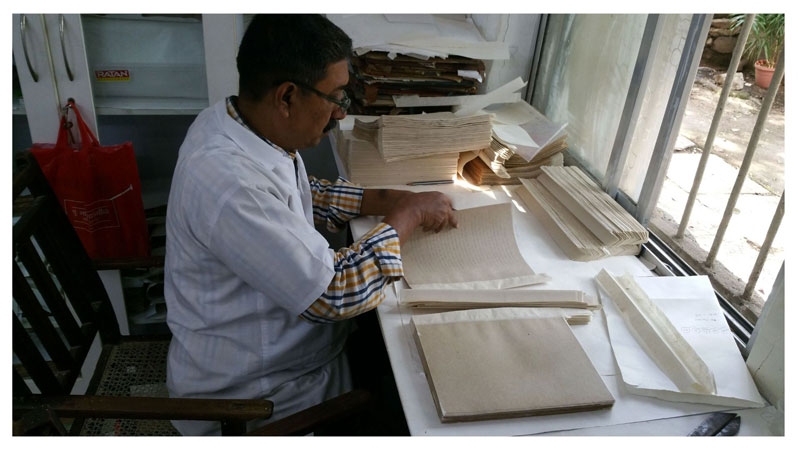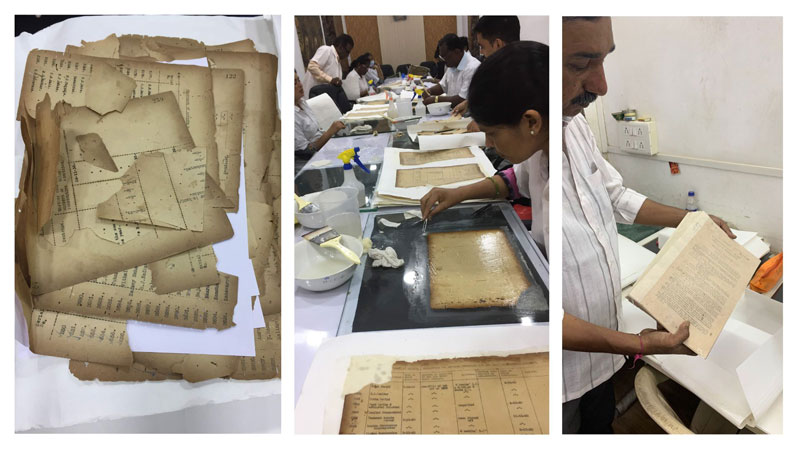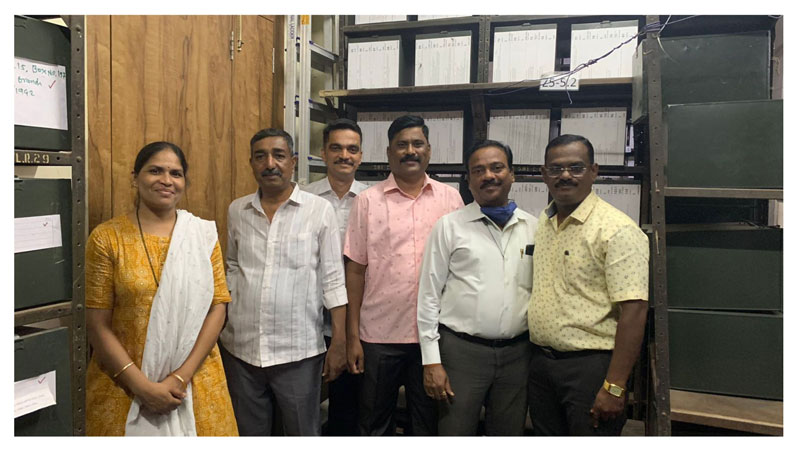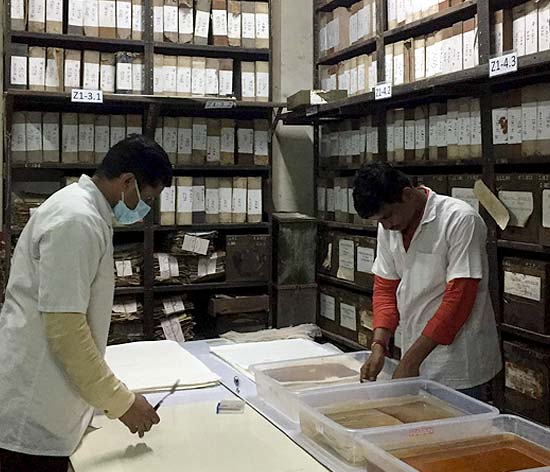Mumbai Police Archives
When the Trusts were first approached, in 2018, by the then Mumbai Police Commissioner to help them set up a Police Museum that commemorates the almost-two-centuries-old history of the Mumbai Police, the Trusts’ team was made aware of their huge records collection that lay piled one on top of the other along shelves that ran up the length of tall walls in the FRRO Office in Fort, Mumbai. Upon inspection of the collection, that ranged from administrative papers to letters and confidential memos sent between police stations and high-ranking officers, it was clear that any history of the police can only be told through stories that emerged from this collection of papers. It was mutually agreed that preserving these records was of utmost, and primary, importance, especially since they contained within its many folios, a history of not only the police force but also the city through the 20th century.
It was agreed that digitisation of these records was not the preferred method, as not only were these records voluminous, they also contained politically sensitive information. While digitisation is the new go-to process for any archive – be it our grandmother’s photo collection or historic manuscript collection – it may not always be the most prudent choice. The maintenance of an analogue archive must have its roots in proper preservation and documentation practices that can prolong the life of the tangible material and make it accessible in a comprehensive way. Digitisation should be the nth stage in this preservation process, as the resources and expertise involved do not come cheap, not to mention the compounding problem of the ever-changing digital formats, cloud storages and server hosting charges.
It has been a year since the Trusts’ project with the Mumbai Police Foundation came to a programmatic close. The project, in a nutshell, sought to train police volunteers in the best practices of paper conservation and archiving so as to manage and preserve their extremely rich records collection that spans the 20th century, and one that was found in a vulnerable state (read more about the project here).
Holistic training of volunteers
A project such as this, which involves partnerships across multiple stakeholders, needed to be managed efficiently so that a workflow and rhythm was established and most importantly a sense of ownership and pride amongst the volunteers that formed the backbone of the project. The management of the archive was something that was stressed upon from the early days of the project, and that capacity had to be built in the team. A team of 40 police officers who had volunteered for the project had to not only be trained in conservation and archiving, but also in how to manage budgets, procure materials and equipment required, and established practices within the office that helped continue the documentation of old and new records.
While some volunteers emerged as skilled technical conservators, some emerged as project managers taking the lead in organising different aspects of the project and troubleshooting issues as they cropped up. With the help from the Trusts, and the experts engaged for training the volunteers, the police team became a cohesive unit dedicated towards the project. When, as is in the normal course of things in the police force, some volunteers were transferred to different posts, they showed initiative in stating their case to the Commissioner of Police towards their reinstatement to the project. Some volunteers, who had quickly understood the step-by-step process to follow for paper conservation, became team leaders who then supervised the work of other volunteers in addition to setting tasks and deadlines for the team. At the end of the project, a total of 30 volunteers remained with the project – 26 as part of the conservation team, and four as part of the archiving team.
Guidance from the two expert contractors involved in the project – HIMSHACO (Himalayan Society for Heritage and Art Conservation, Nainital) for paper conservation training and Eka Archiving Services Pvt Ltd for training in archive management – ensured that the doubts and queries of the team were resolved and they were on track with the timelines and work plans.
Creating a sustainable archive
The sustainability of the project was built into its programme structure and was dependent on several factors that were nurtured through the course of the project. On the technical front, creating procedure manuals, for both the archiving and the conservation teams, was important as they became the reference material for the team. Additionally, video documentation of the conservation processes was done and shared with the team; and important sections from the archiving manual were translated into Marathi to allow for a smoother transition as the police team took over the reins of the project from the expert trainers. Demarcating a work space by setting up a conservation lab and allocating roles and responsibilities was stressed from the beginning, and simple measures like labelling of spaces and creating individual task lists is something the team graduated into following as practice. Administratively, the project helped streamline the foundation’s procurement procedures, maintaining a stock register and reporting procedures.
While the project with the Trusts was completed in February 2020, two years hence, as of May 2022, the work at the Mumbai Police Archive continues, albeit at a slower pace. Some changes, post-pandemic, include a reduction in the police volunteers who work on the project, with about 10 persons now stationed at the archives. Some of the spaces cordoned off for use by the archives team have been recalled by different police departments for their use, but the modest paper conservation lab established during the project remains with the team. This space houses all the material for their paper conservation efforts, as well as all the conserved and re-bound weekly digests. The space of the archives has transformed in two years of the project period, with regular housekeeping and replacement of all the old and tattered wooden and metal boxes with acid-free boxes and refurbished metal containers. The team present on-site continues to undertake conservation of record books and documents, as well as regularly clean and store the paper records in acid-free folders. With an archiving system in place, we hope that more researchers will be able to access this important archive, with proper permissions. Mumbai Police Archive’s future plans may also include setting up training workshops for other government archives/ records collections, where in-house capacity can be built.
